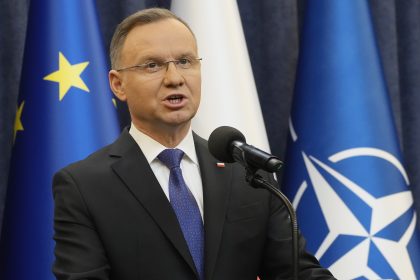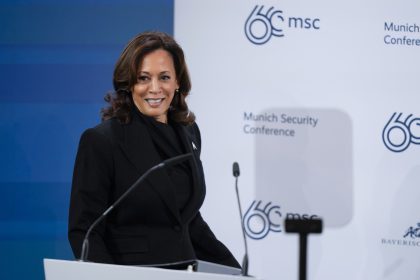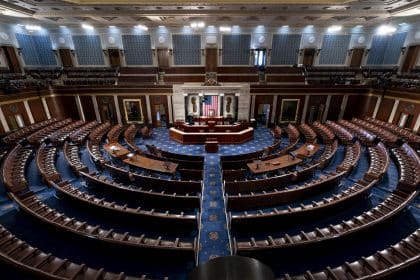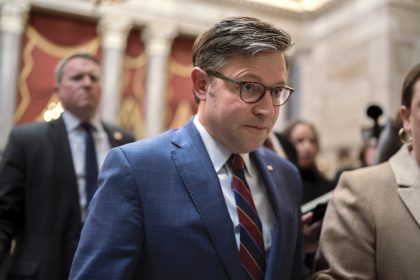Abbott Defended Australia’s AUKUS Sub Agreement in Special Trip to U.S.
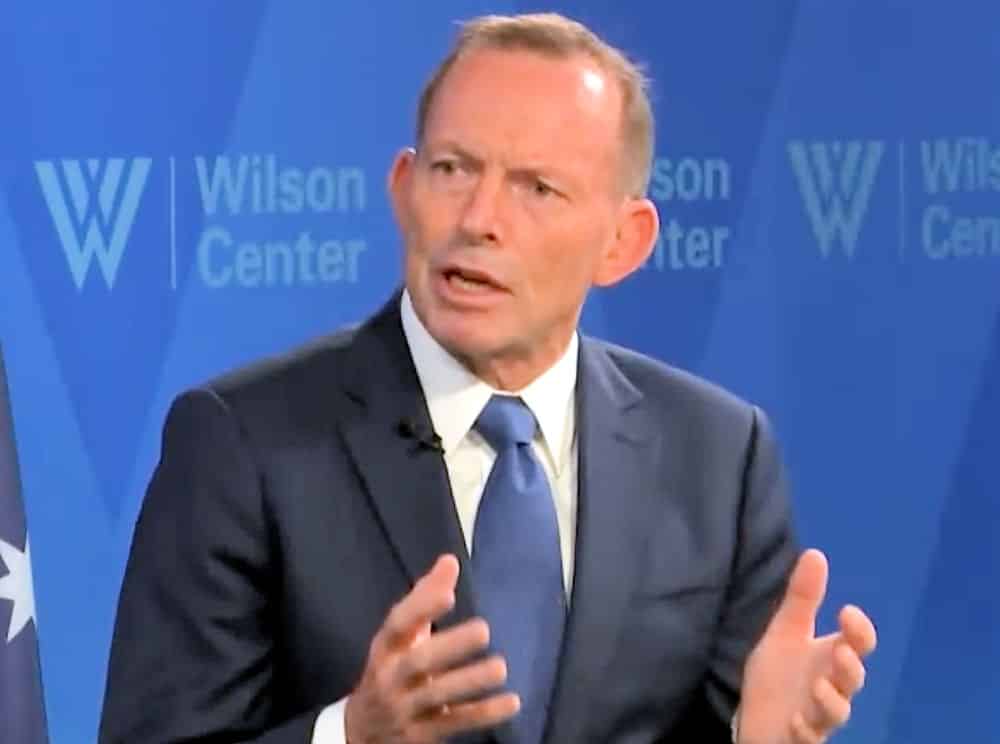
WASHINGTON — The United States, France and Australia have been in a public fight over a canceled submarine deal that has heated since the three nations came together at the COP26 environmental talks in Scotland. In the days leading up to the Glasgow discussions, Tony Abbott, the former prime minister of Australia, made a special trip to the U.S. to defend his government’s withdrawal from the $90 billion submarine agreement with France and attempted to solidify Australia’s alliance with the U.S.
“[AUKUS] is probably the biggest decision any Australian government has made in decades,” Abbott earlier shared with the Wilson Center as he laid out his reasons for growing concern with China and Australia’s perceived need to ensure nuclear-powered submarines “not in two decades time, but now.”
“The peril is not far off. It is important to be conscious of what might happen quite soon and be ready to deal with it,” Abbott added, citing China’s bullying of nations in the Indo-Pacific such as “extreme and increasing belligerence toward Taiwan” as well as weaponized trade against Australia “on bogus safety grounds.”
While France was furious after Australia canceled their deal to build a dozen submarines, instead negotiating AUKUS as a new defense pact with the U.S. and U.K., Australian officials claim they have been upfront about their insistence that conventional submarines are no longer sufficient to meet the nation’s defense needs.
The 2016 deal between France and Australia, called the Future Submarine project, was meant to replace Australia’s aging sub fleet with 12 new diesel-electric submarines by 2036. But now Australia says China’s “bullying” and other security challenges have forced the need for a type of submarine that France cannot provide, stating the development of nuclear submarines for Australia is a top priority.
“We need better, bigger, faster, more wide ranging submarines… We need to get our hands on a nuclear-powered submarine in months rather than decades,” Abbott insisted, suggesting that a full-scale Chinese invasion of Taiwan was “entirely possible” and the Quadrilateral Security Dialogue or “Quad” between the United States, India, Japan, and Australia needed to be prepared to confront it.
“I don’t think it’s safe to assume this won’t happen for years or decades… I know the world has a lot on its plate at the moment, but we cannot allow ourselves to miss what is going on between China and its neighbors.”
The AUKUS trilateral security partnership with the U.S. and U.K. provides Australia with one of its biggest defense partnerships in decades, allowing the Indo-Pacific nation to build nuclear-powered submarines for the first time. But even so, during Abbot’s meetings in Washington in late October, he was pressing for more.
Abbott wasn’t shy about his efforts to seize any opportunity to buy a retiring Los Angeles-class nuclear-powered submarine from the U.S. — or Trafalgar-class from the U.K. Royal Navy — for training, and possibly additional attack submarines for operations, until Australia can commission one of its own.
“When dictators speak clearly, we have to take them seriously,” Abbott said, pointing out that Chinese President Xi Jinping “has shown an appetite for risk-taking” especially in cracking down on pro-democracy advocates that threaten Chinese authoritarian rule.
And while France and Australia may be at odds over current trade and diplomatic relations as a result of the reneged deal, Abbott’s remarks to the Wilson Center suggested the U.S., Australian alliance was of utmost importance.
“Australia has been with the U.S. in every single one of its conquests since… 1918,” Abbott reminded. “America may have more important allies, more [powerful] allies, but it will never have a more dependable ally than Australia.”
Kate can be reached at [email protected]

















